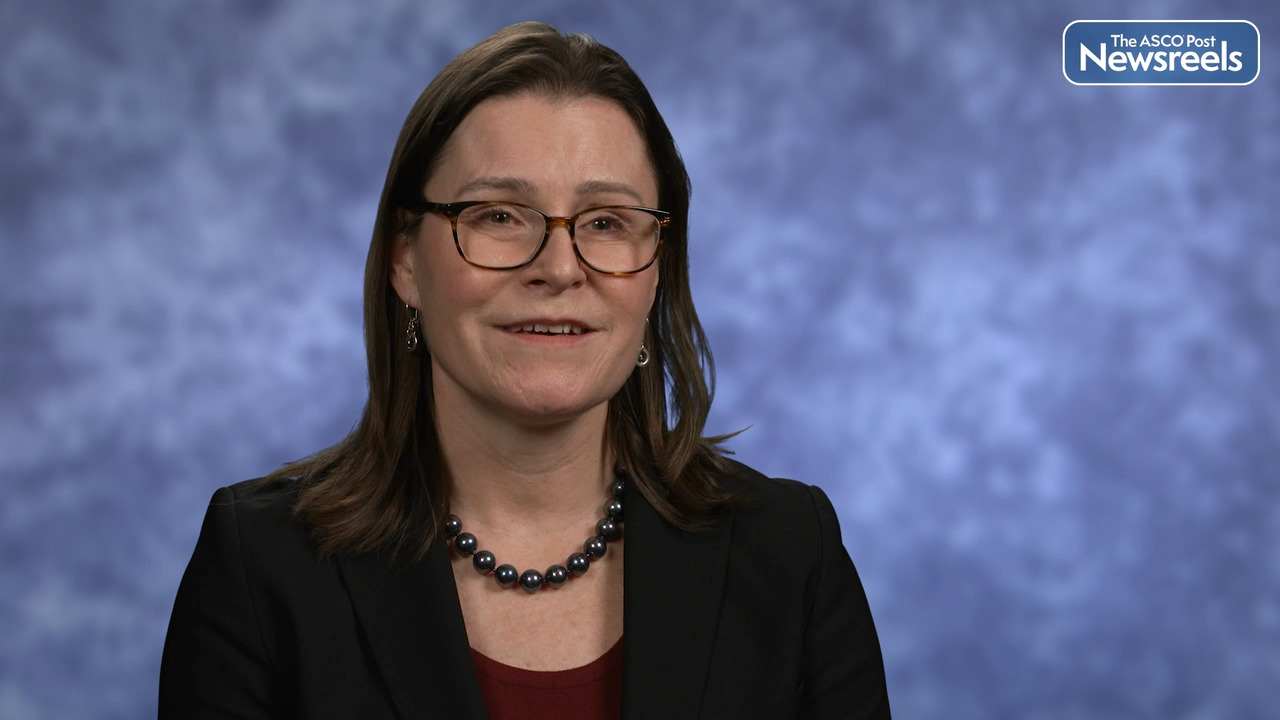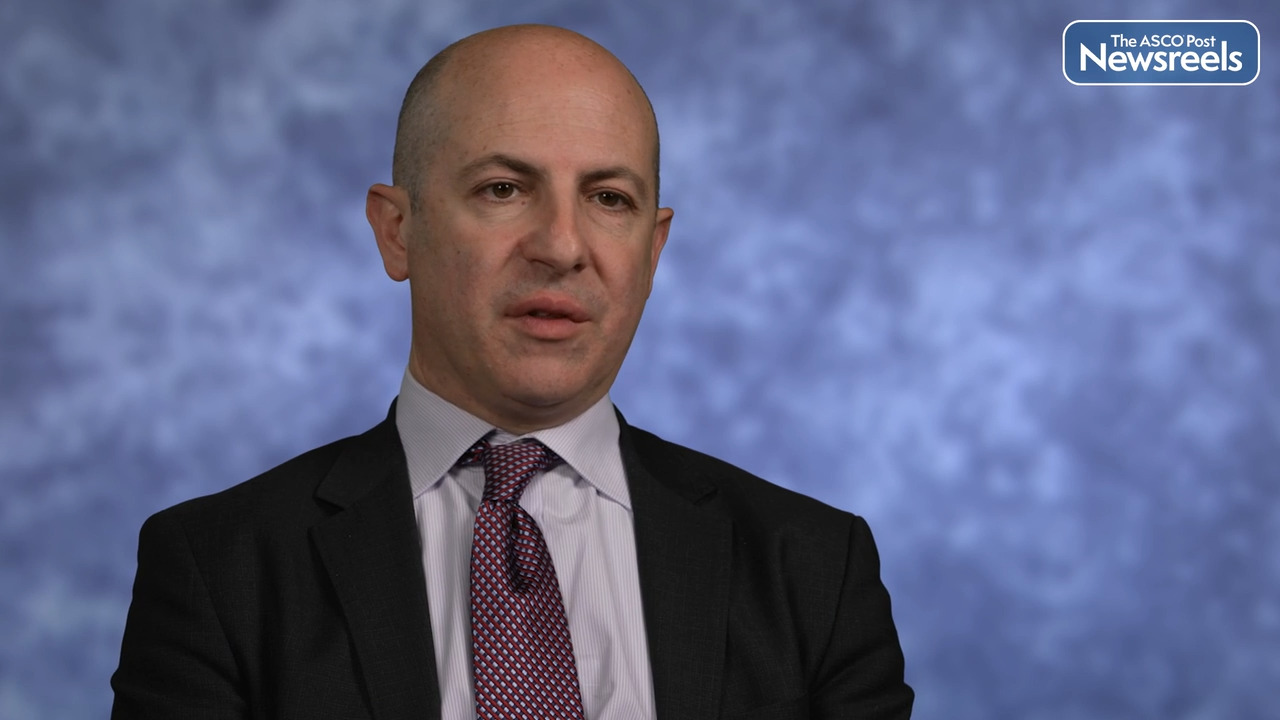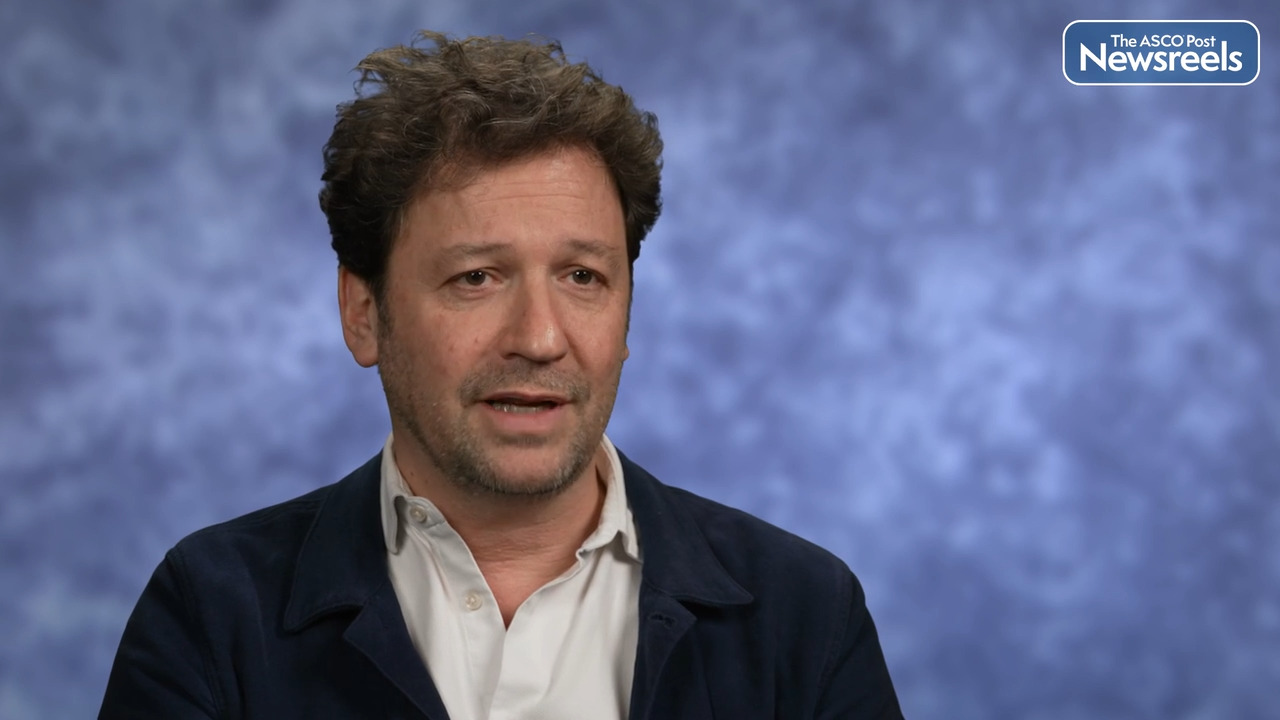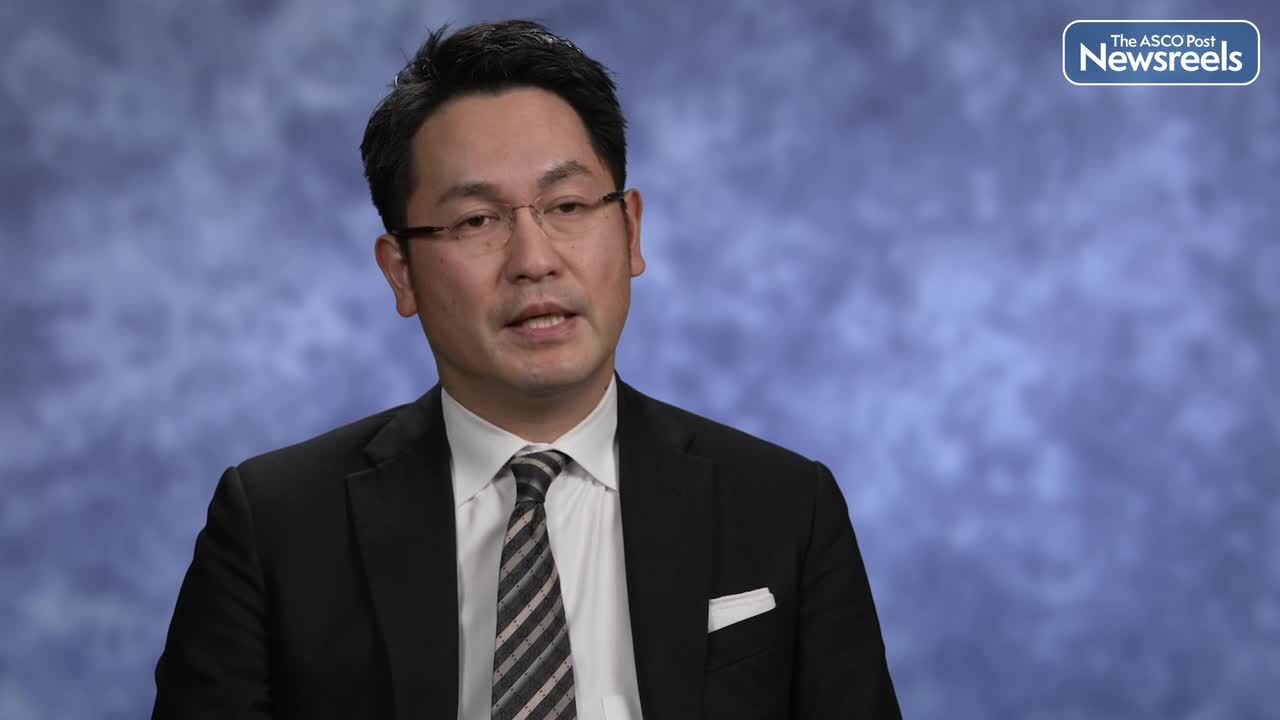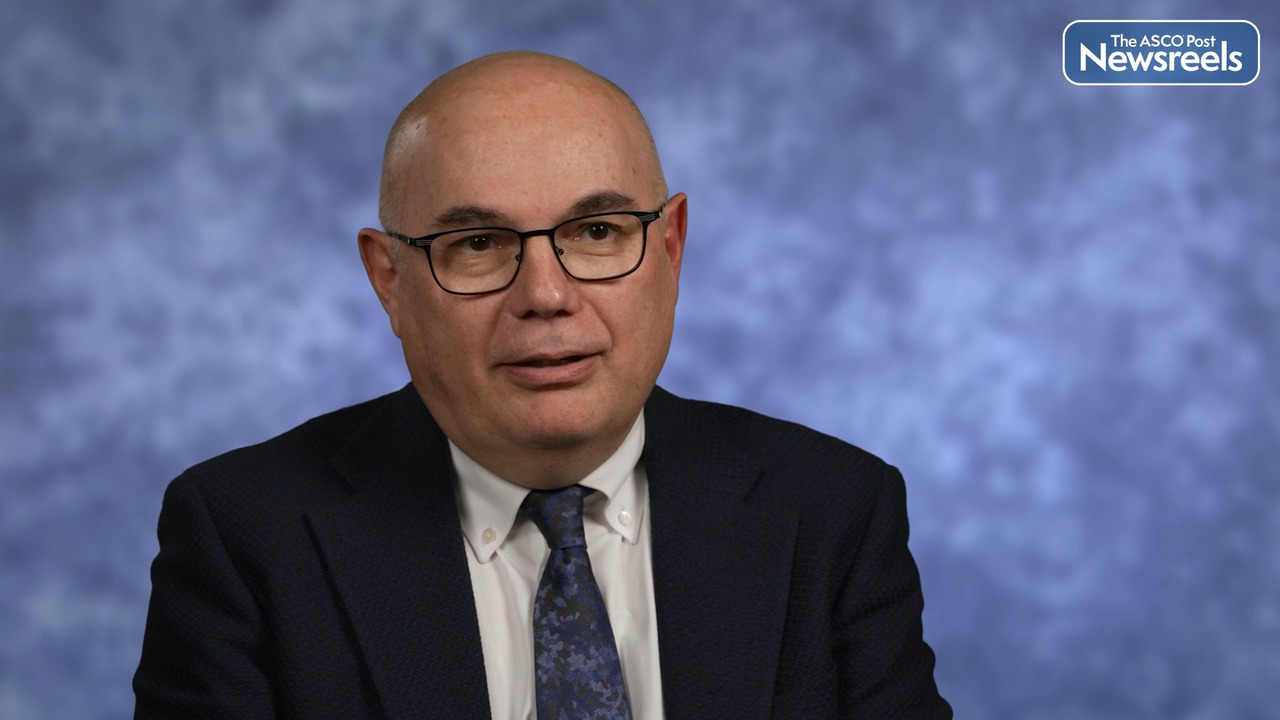Richard S. Finn, MD, on HCC: Tislelizumab vs Sorafenib, and Their Impact on Quality of Life
2023 ASCO Gastrointestinal Cancers Symposium
Richard S. Finn, MD, of the David Geffen School of Medicine at the University of California, Los Angeles, discusses findings from the RATIONALE-301 study, which showed that patients with unresectable hepatocellular carcinoma (HCC) treated with first-line tislelizumab had better health-related quality-of-life outcomes compared with those treated with sorafenib, particularly in terms of fatigue and physical functioning. These results, along with the effects on overall survival, response rate, and a favorable safety profile, support the benefit of tislelizumab as a potential first-line treatment option in this patient population (Abstract 495).
Transcript
Disclaimer: This video transcript has not been proofread or edited and may contain errors.
The RATIONALE-301 Study was a global randomized open label study whose primary endpoint was presented at ESMO 2022, which looked at the PD-1 antibody, tislelizumab, versus sorafenib in an open-label study with the primary endpoint being overall survival in patients with advanced liver cancer. This study was powered for non-inferiority and met its primary endpoint of demonstrating non-inferiority to sorafenib with a hazard ratio of 0.85. The upper limit of the confidence interval did cross one, but it was lower than the non-inferiority threshold. So initially presented were other secondary endpoints, such as an improvement in objective response rate, as well as a very clean safety profile for tislelizumab.
Here at ASCO 2023 GI, we presented patient-reported outcomes and quality of life readouts from the study. These are pivotally important in modern oncology studies, especially when powered for non-inferiority, and we demonstrated that this monoclonal PD-1 antibody, tislelizumab, improved several patient-reported outcomes using several well-validated screening tools. There was a very high compliance with completing these tools and really supports the overall data that single-agent PD-1 inhibition with tislelizumab can play a role in frontline liver cancer. Even though the study did not improve survival versus sorafenib, the fact that the drug improved response rates, had a clean safety profile and improves and maintains quality of life, as compared to sorafenib, which we've had for a long time, which did improve survival but also has significant side effects which can affect quality of life.
The landscape for liver cancer has changed. PD-1 doublets are being used, atezo/bev. More recently, Durva/Treme was approved. We also have the TKIs, such as lenvatinib and sorafenib. But I think there's still probably a role for single-agent PD-1 inhibition for some patients, and especially now we have level one evidence that tislelizumab is active in the frontline and has a better quality of life profile, which is important for these patients who all have comorbidities, especially underlying liver disease, and it's not just improving their survival, but maintaining their quality of life that's important.
Related Videos
The ASCO Post Staff
Laura A. Dawson, MD, of Canada’s Princess Margaret Cancer Centre, discusses phase III findings showing that compared with best supportive care alone, single-fraction whole-liver radiation therapy appears to improve hepatic pain in the majority of patients with treatment-refractory or -ineligible hepatocellular carcinoma or liver metastases. In addition, the data indicated a trend for improved 3-month survival with radiation therapy (Abstract LBA492).
The ASCO Post Staff
Zev A. Wainberg, MD, of the UCLA School of Medicine, discusses phase III findings from the NAPOLI-3 trial, which showed that first-line NALIRIFOX (liposomal irinotecan plus fluorouracil/leucovorin plus oxaliplatin) improved overall and progression-free survival compared with nab-paclitaxel plus gemcitabine in treatment-naive patients with metastatic pancreatic ductal adenocarcinoma. The safety profile of NALIRIFOX was manageable and consistent with the profiles of each agent (Abstract LBA661).
The ASCO Post Staff
Julien Taïeb, MD, PhD, of Hôpital Européen Georges Pompidou, Université Paris-Cité, discusses the clinical implications of new phase III findings from the SUNLIGHT study, which showed that trifluridine and tipiracil (FTD/TPI) plus bevacizumab resulted in improved outcomes compared with FTD/TPI alone in patients with refractory metastatic colorectal cancer. This three-drug regimen may represent a new standard of care for patients whose cancer has progressed despite two lines of therapy (Abstract 4).
The ASCO Post Staff
Souya Nunobe, MD, PhD, of Japan’s Cancer Institute Hospital and the Japanese Foundation for Cancer Research, discusses 5-year follow-up results of the phase III OPAS-1 trial, which compared four and eight courses of S-1, a novel oral fluoropyrimidine derivative adjuvant chemotherapy for patients with stage II gastric cancer. These final follow-up findings confirmed the benefit of S-1 and its use for 1 year to treat this population (Abstract 381).
The ASCO Post Staff
Josep Tabernero, MD, PhD, of Spain’s Vall d’Hebron Institute of Oncology, discusses phase III findings from the SUNLIGHT study, which showed that trifluridine and tipiracil (FTD/TPI) plus bevacizumab resulted in improved outcomes compared with FTD/TPI alone in patients with refractory metastatic colorectal cancer. Improvements in survival occurred irrespective of tumor sidedness, RAS mutational status, and receipt of prior bevacizumab. This three-drug regimen may represent a new standard of care for patients whose cancer has progressed after two lines of therapy (Abstract 4).
